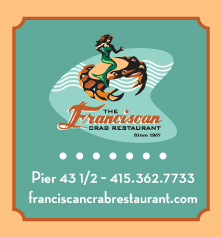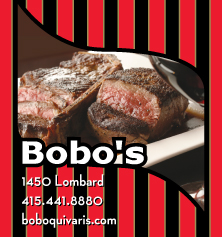On the Plus Side
Getting to know you
Because you and I are now getting used to life in the Third Millennium, we won’t be shocked by the possibility that the brain is a hologram. (Stay with me – this gets easier.)
Remember what a hologram is? If you want to see one, you have only to look at one of the credit cards in your wallet – if you still carry any of those dangerous 20th century things. It’s that little photographic image that seems to change as you tilt it this way and that. Earlier dictionaries don’t include the word because it can only be created by coherent light – a laser – common now in CDs, DVDs and ID cards, which is a relatively recent invention.
One of the curious, almost-Harry Potter-magical properties of the hologram is that any part of it contains a lot of the information about all the rest of it.
Wouldn’t it be wonderful if we mere humans shared that characteristic? I’d have a much better sense of you – the whole picture – instead of just the particular face you’re wearing when we encounter each other. I’d have a much better sense of myself, too – all of my attributes, instead of just my frame of mind at any given moment. I’d know myself in my entirety all the time instead of just the limited view filtered by my transient mood.
“… When the coster’s finished jumping on his mother, he loves to lie a-basking in the sun …” Now if you’re not conversant with the delicious 19th century wordplay of Gilbert and Sullivan, that quote is from their lament “A Policeman’s Lot is Not a Happy One.” It makes the point about how infernally complex each human being is and the almost hopeless task we face in trying to understand each other truly and completely.
The idiot in the oversized SUV who cuts in front of me, making a right turn from the left lane, may also be the gourmet cook who prepares a delicate scaloppini to the mystical strains of music by Eric Satie. The shrew who snatched the last cashmere sweater from you at the Loehmann’s sale is possibly also the person who gave up a Saturday to help clean the beach and lovingly adopts orphaned animals.
Conversely, that generous, philanthropic psychiatrist who devotes his life to helping people with their problems of living may just also be the drunken lout at home who beats his kids. And we think we really know each other!
One of the joys of aging is the paradoxical gift of time. While I know that my future on this planet is much shorter than my past, there is also a freedom now from the clock that was not available when I was driven by attending classes, raising kids, holding a job, maintaining a household. And one of the possible uses of my discretionary time now is to try to reduce the perpetual sense of isolation and loneliness that I suspect all of us feel at our inner core. The nagging desire to feel more connected with others can be somewhat alleviated, but it takes effort and attention.
To try to get to really know you, you’d think I’d start by asking lots of questions, but my experience tells me that approach wouldn’t accomplish the intimacy that I seek. Probing questions can make others feel invaded, attacked, defensive. But to the extent that I can disclose myself to you – become more transparent, reveal my passions, fears, hopes, and preferences – there is an inherent invitation for you to do the same. We discover our similarities and our differences, agreements and conflicts. We discover that we’ve shared many of the same sorrows and pleasures, and that, while we follow separate paths, our journeys have some experiences in common.
I don’t know whether the brain is a hologram, but I do know that the part we show to each other does not make the whole known. I’d probably have more compassion for people who annoy me if it did. So if I am to narrow the gap between us, I must try to understand who you really are. But I can only hope to open that door to you by unlocking and opening my own.
Remember what a hologram is? If you want to see one, you have only to look at one of the credit cards in your wallet – if you still carry any of those dangerous 20th century things. It’s that little photographic image that seems to change as you tilt it this way and that. Earlier dictionaries don’t include the word because it can only be created by coherent light – a laser – common now in CDs, DVDs and ID cards, which is a relatively recent invention.
One of the curious, almost-Harry Potter-magical properties of the hologram is that any part of it contains a lot of the information about all the rest of it.
Wouldn’t it be wonderful if we mere humans shared that characteristic? I’d have a much better sense of you – the whole picture – instead of just the particular face you’re wearing when we encounter each other. I’d have a much better sense of myself, too – all of my attributes, instead of just my frame of mind at any given moment. I’d know myself in my entirety all the time instead of just the limited view filtered by my transient mood.
“… When the coster’s finished jumping on his mother, he loves to lie a-basking in the sun …” Now if you’re not conversant with the delicious 19th century wordplay of Gilbert and Sullivan, that quote is from their lament “A Policeman’s Lot is Not a Happy One.” It makes the point about how infernally complex each human being is and the almost hopeless task we face in trying to understand each other truly and completely.
The idiot in the oversized SUV who cuts in front of me, making a right turn from the left lane, may also be the gourmet cook who prepares a delicate scaloppini to the mystical strains of music by Eric Satie. The shrew who snatched the last cashmere sweater from you at the Loehmann’s sale is possibly also the person who gave up a Saturday to help clean the beach and lovingly adopts orphaned animals.
Conversely, that generous, philanthropic psychiatrist who devotes his life to helping people with their problems of living may just also be the drunken lout at home who beats his kids. And we think we really know each other!
One of the joys of aging is the paradoxical gift of time. While I know that my future on this planet is much shorter than my past, there is also a freedom now from the clock that was not available when I was driven by attending classes, raising kids, holding a job, maintaining a household. And one of the possible uses of my discretionary time now is to try to reduce the perpetual sense of isolation and loneliness that I suspect all of us feel at our inner core. The nagging desire to feel more connected with others can be somewhat alleviated, but it takes effort and attention.
To try to get to really know you, you’d think I’d start by asking lots of questions, but my experience tells me that approach wouldn’t accomplish the intimacy that I seek. Probing questions can make others feel invaded, attacked, defensive. But to the extent that I can disclose myself to you – become more transparent, reveal my passions, fears, hopes, and preferences – there is an inherent invitation for you to do the same. We discover our similarities and our differences, agreements and conflicts. We discover that we’ve shared many of the same sorrows and pleasures, and that, while we follow separate paths, our journeys have some experiences in common.
I don’t know whether the brain is a hologram, but I do know that the part we show to each other does not make the whole known. I’d probably have more compassion for people who annoy me if it did. So if I am to narrow the gap between us, I must try to understand who you really are. But I can only hope to open that door to you by unlocking and opening my own.
Hank Basayne is a San Franciscan, a minister and an author who revels in connection with like-minded others.


